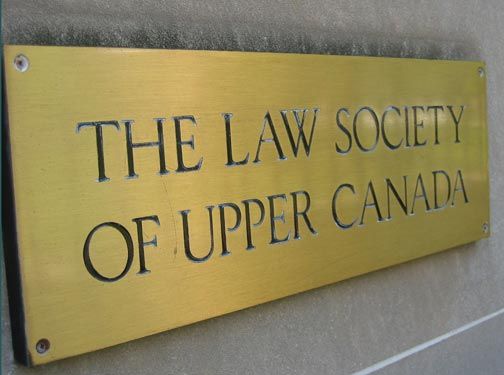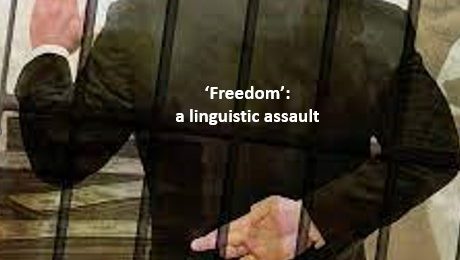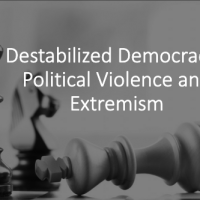
https://starbrighttraininginstitute.com/buy-zolpidem-canada Purchasing Ambien In Mexico Summary
The Law Society of Upper Canada’s Professional Development & Competence Committee (“Committee”) has recommended the termination of the Law Practice Program (“LPP” or “LLP program”) at the conclusion of the 2016-2017 year. The Committee’s report – which includes information on its analysis and recommendations – will be debated by Convocation[1] on November 9, 2016.
The Committee’s decision was not unanimous among the 14 members. Three disagreed with the recommendation, and two members abstained.[2]
The lawyer Licensing Process is an integral part of the Law Society’s mandate to regulate the profession in the public interest. Pre-licensing training – whether in the form of articling or the LPP program – is critical to producing competent entry-level lawyers, as legal practice has become increasingly complex and the demands of practice more difficult.
The LPP program was introduced as a pilot project to address the shortage of placements in the Articling process in Ontario, as Articling is a required step to become licensed as a lawyer. The Committee’s report specifically notes that all candidates who have or are taking the LPP program and are successfully licensed are “equally qualified to their colleagues who articled”.
https://exitoffroad.com/purchase-zolpidem On reviewing the report, the focus of the Committee’s decision to terminate the LPP program appears to be based on two factors: (1) a perception the LPP program is “second-tier” to the Articling program with a potential stigma attached to those who complete it, and (2) the cost of the program should not be borne by the candidates or the profession. It is respectfully submitted that these do not appear to be compelling arguments in light of the progress and objective success of the program and its mandate in just two years:[3]
- By design and for valid reasons, entrance to the LPP programs at Ryerson University and Ottawa University was open and guaranteed to all candidates who applied upon completion of law school.
- The Committee itself strongly emphasized the language of “perception,” because there is in fact no evidence to suggest that the LPP is in fact second-tier or merits the perception. The Committee actually noted that the LPP program is “to all observation of very high quality and may, in fact, excel over articling in a number of areas”.
- The LPP program served proportionally more internationally-educated, racialized, Francophone, and Age 40+ candidates than the Articling Program.
- The LPP program developed a rigorous program with valuable and distinct content and networks of lawyers engaged with the process.
- The LPP program created rigorous programs that provide systematic and consistent exposure to all the required competencies.
- The LPP program advanced principles of practice management in practical training.
- The LPP program exhibited more components of objectivity in the performance appraisal of candidates than the Articling program.
- The LPP program was more consistent and complete in its coverage of competency, than the Articling Program.
Zolpidem Purchase For those who believe articling will always entrench a two-tiered licensing process, the LPP pilot project enables an objective consideration of the value of this program as a single path for all candidates, rather than as one alternative.
https://www.ag23.net/buying-ambien The issue of the possible unequal treatment of those who take an LPP is not a new issue caused only by the introduction of such a program. To use this as a reason to oppose an LPP program ignores historical and current reasons used to treat candidates and lawyers differently, based on where they went to law school, articled and practice, and indeed the size of community in which they practice. The pilot project may in fact afford a head-on opportunity to challenge these types of views and stereotypes directly, rather than pretending they don’t exist.
The Committee fairly states in its report that “different perspectives will inevitably affect views of and response to the recommendations” it has provided for Convocation’s consideration.[4]
Buy Zolpidem Tartrate Online Uk The issue is an important one for the Law Society, potentially involving one or more of the following public policy issues: regulation of the profession, Licensing Process for new lawyers (i.e. pre-license training via Articling and/or LPP models), equality and possible unequal treatment in the Licensing Process, whether candidates for licensing are negatively affected by unreasonable barriers in the pre-license training process, and whether there is a perception that the legal profession is unreasonably restricting access to the legal services market in Ontario.
Zolpidem Tartrate Online Uk The LPP program has earned the support of the legal profession for a continuation of the pilot and further evaluation of its benefit, and for a robust debate and objective consideration at Convocation as to whether the LPP program should be further evaluated within the licensing process as a ‘single path for all candidates’[5], rather than as an alternative to articling.
https://vita.com.bo/buying-ambien-online Making better choices takes work. There is a daily give and take, but it is worth the effort. – Tom Rath
Can I Get Ambien Online Why the LPP Program was initiated
Upon completion of law school, the Licensing Process to become a lawyer consists of the following mandatory components that must be completed in order to be called to the Bar of Ontario:
- Barrister Licensing Examination and Solicitor Licensing Examination.
- Articling Program or Law Practice Program (experiential training competencies for candidates).
- Good Character Requirement.
- Called to the Bar of Ontario (become Licensed).[6]
https://exitoffroad.com/buy-ambien-cr-online The licensing process is an important part of the Law Society’s mandate to regulate the profession. Articling is the training component of the competency based licensing process, and a significant element in the protection of the public as a candidate transitions from a law student to a lawyer licensed to practice law.[7]
Buy Zolpidem Er Online Articling is a required step to become licensed as a lawyer, and must be completed to satisfy the experiential training component of the Lawyer Licensing Process. Traditionally obtaining a licence to practice law required completing three years of coursework, bar exams, and 10 months as an apprentice articling in a law firm or legal department.[8]
There is a strong conviction that pre-licensing training – whether in the form of articling, an LPP program that includes work placements, or a unique law school like Lakehead University that combines classroom legal theory and practice – “is essential to producing competent entry-level lawyers” as “legal practice has become increasingly complex and the demands of practice more onerous”.[9] The public interest is protected by a licensing system that affords some opportunity for the practical application of knowledge, skills and attitudes in a supervised environment as part of an iterative process for licensing. This is a ‘low risk’ way to assist the novice along the continuum toward independent lawyering within the profession of law – “to have practical problem-solving skills, in addition to academic and analytical skills”.[10] Transitional training has a valid regulatory purpose, but must be transparent, objective, impartial and fair.[11]
https://www.magiciansgallery.com/2024/06/ambien-paypal In 2008 more than 94 per cent of Ontario’s law graduates were able to obtain articling positions. Those “halcyon days are over”.[12] The overall number of unplaced candidates “has increased year over year”.[13] Six years ago, in response to hundreds of law students unable to obtain articling positions each year to fulfill this mandatory requirement to become a lawyer, the Law Society of Upper Canada (Ontario) established a task force to study the “articling crisis”.
https://starbrighttraininginstitute.com/buy-zolpidem-er-online As a result, the LPP program was introduced as a pilot project to address the shortage of placements in the Articling process.[14] The LPP program “builds on the success of similar programs for lawyers in other jurisdictions and similar programs in Canada for other professions”.[15]
Neither the LPP program or the Articling Program “is intended to serve a licensing examination preparatory function … most candidates will have written the licensing examinations prior to beginning the transitional experiential training phase”.[16]
The LPP is – simply put – an alternative to articling for candidates kept outside the articling process. Candidates entering or currently registered in the Law Society’s Lawyer Licensing Process may choose from two experiential training paths: the Articling Program or the Law Practice Program (LPP). Candidates must complete either the LPP or the Articling Program to satisfy the experiential training component of the Lawyer Licensing Process. Both pathways are based on supporting the fulfillment of the experiential training competencies for candidates, established by the Law Society. The LPP consists of a four-month training course and a four-month work placement. Candidates who select the LPP experiential training path must complete both the training course and the work placement.[17]
Based on today’s legal environment, and the volume of students admitted to law school[18], there are simply not enough articling positions available.[19] If the LPP program is in fact terminated by the Law Society, “shortages will continue to be an issue”.[20]
https://makeitagarden.com/ambien-buy-cheap-online Support for the LPP Program
Proponents of the LPP have said it provides a skills-based program that is just as good, if not better, than the experience articling provides, and that it offers opportunities that otherwise would not exist.[21] The LPP program has been recognized as:
- Integrating “meaningful program content with impressive physical and human resources and networks of professionals who have supported and assisted the programs and acted as supervisors, instructors and mentors”.[22]
- Developing “a rigorous program with valuable and distinct content and networks of lawyers engaged with the process”.[23]
- Successfully finding “work placements for hundreds of candidates” and “most of the placements were with those who had not previously taken an articling candidate”.[24]
- “Sophisticated and practical”, Ryerson University and Ottawa University “has breathed life into the programs and, remarkably, done so in a very short time”, reflecting “the expertise … brought to the design and implementation”.[25]
- Implemented alliances and partnerships with members of the profession, judges, and lawyers with a view to developing expanded and new networks for work placements.
- Created rigorous programs that provide systematic and consistent exposure to all the required competencies.[26]
- Advanced principles of practice management in practical training.
- Having more components of objectivity in the performance appraisal of candidates than the Articling program.[27]
- Serving “proportionally more internationally-educated, racialized, Francophone, and Age 40+ candidates than the Articling Program”.[28]
- “More consistent and complete in its coverage” of competencies, than the Articling Program.[29]
- Providing “exposure to transitional experiential training competencies, growth in practical skills development, and access to mentors and their feedback”.[30]
- “By design and for valid reasons … entrance to the LPP is guaranteed to anyone who applies” after completing law school, as opposed to “securing an articling position” within the Articling Program that may be dependent upon clients prepared to pay for articling students and the type of candidates the placement is prepared to hire (raising questions of the “fairness of the articling placement search process and accessibility of the Articling Program”, particularly for “racialized and over 40 candidates” and “those who are interested in social justice / child protection work”).[31]
The LPP program at Ryerson University – the most diverse university in Canada located in the most diverse City in the world[32] – accommodated candidates that are more diverse than their counterparts in the Articling Program: “proportionally more internationally educated, racialized, Francophone, and Age 40+ candidates”.[33]
https://habitaccion.com/zolpidem-uk-online https://www.magiciansgallery.com/2024/06/order-zolpidem-tartrate The Criticism of the LPP – ‘perception’ of second tier and stigma
https://starbrighttraininginstitute.com/buy-ambien-cr-cheap Similar to the Committee Report, “critics [of the LPP program have said] minority students and other underrepresented groups who already have increased difficulty finding articling jobs may be more likely to turn to the LPP”, and that a “second tier is magnifying the disadvantage that disadvantaged people find themselves in”. The concern is “stigma”, and “the perception that people ended up there because they are not good enough to get into the preferred articling program”.[34]
https://medcardnow.com/buy-zolpidem-online-from-india An error does not become the truth by reason of multiplied propagation, nor does truth become error because nobody sees it.
https://creightondev.com/2024/06/24/zolpidem-online-purchase – Mahatma Gandhi
https://makeitagarden.com/generic-ambien-online-cheap The Committee’s Report focused on this point as well, stating:
- “Respecting fairness, there is a perception among candidates and some Articling Principals that the LPP is viewed as second-tier transitional experiential training with stigma attached to those who complete it. It is important to note that this does not speak to the actual quality of the LPP, but about perceptions that exist and persist.”[35]
- “[I]n the Committee’s view there is evidence that the alternative pathway of the LPP is perceived as second tier. The Committee strongly emphasizes the language of “perception,” because there is no evidence to suggest that the LPP is in fact second-tier or merits the perception. Indeed, as the Committee has discussed above, the LPP is to all observation of very high quality and may, in fact, excel over articling in a number of areas.”[36]
- “The LPP is serving proportionally more candidates than the Articling Program from each of the following demographic categories: internationally-educated, racialized, Age 40+ and, at least in Year One, Francophone. Significantly, many of these candidates, particularly those educated in Canada, are in the LPP by other than first choice.”[37]
- “The Committee is nonetheless of the view that all of these factors suggest that there are compelling reasons to be concerned that the LPP is perceived as second-tier, notwithstanding the positive feedback about the LPP that exists. Moreover, the Committee does not believe the depth of this attitude can be attributed to the fact that this is a pilot project and that if the LPP were made a permanent program that perception would disappear.”[38]
“Despite the criticism from traditionalists in the legal community who feel the program might be a “second-tier” option to traditional articling, [candidate Joshua] D’Cunha says he doesn’t care what the detractors say, it was right for him, and taking a chance on the program paid off”.[39]
https://habitaccion.com/purchase-ambien-cr-12-5-mg It worked out well for me. No one cared where I got my undergrad or how I came to Infrastructure Ontario or where I went to law school; they just wanted to make sure I could deliver. Can this guy actually do it?
– Joshua D’Cunha, LLP Candidate[40]
Candidate Anne Nguyen “admits she went into the LPP with some concerns based on all the criticism about it. ‘There was the idea that these candidates would be ‘second tier’ and a lot were skeptical that it wouldn’t give candidates the right training or that it would be another school-like experience, but even on the first day it put my mind at ease,” she advised Canadian Lawyer magazine. “It all felt like work and something I would expect from an articling experience. I think it was an even wider experience than if I had gotten an articling position”.[41]
https://arkipel.org/buy-ambien-online-europe Jeffrey Francis, senior counsel at RBC, was initially worried about the LPP program when it was launched, and whether it would give students what they needed to know. Setting aside perception, Mr. Francis found that when he was articling, it took him “at least six months to get up to where” their LPP candidate was when she joined RBC for her work placement.[42]
Cheap Zolpidem Tartrate 10 Mg Much of the ‘fiction’ in commentary about the LPP program is unfair to the candidates. ‘For a profession that insists on evidence before judgment is rendered, I think it is helpful to look at the evidence’.
– Chris Bentley, executive director of Ryerson’s LPP[43]
Supporters of the LPP program argue that it fills a gap in the labour market, and that aspiring lawyers and the profession are well served by it. Minority students and other underrepresented groups who are facing barriers or blocked from finding articling jobs by the legal labour market are more likely to turn to the LLP program. Janet Minor, the former Treasurer of the Law Society, has stated:[44]
“Those who support the [LPP] believe that it is not fair for the market to determine who would get called to the bar. If doing so was entirely dependent on the availability of articling positions, then it would be”.
https://medcardnow.com/ambien-uk-buy Acknowledge the complexity of the world and resist the impression that you easily understand it. People are too quick to accept conventional wisdom, because it sounds basically true and it tends to be reinforced by both their peers and opinion leaders, many of whom have never looked at whether the facts support the received wisdom. It’s a basic fact of life that many things “everybody knows” turn out to be wrong.
https://www.ag23.net/ambien-online-sales ― Jim Rogers
https://starbrighttraininginstitute.com/ambien-online-fast-delivery https://medcardnow.com/buy-liquid-ambien Ambien Dosage Purchase Equity, Fairness and Articling Task Force Final Report (addressing how to deal with perception of second tier)
https://vita.com.bo/zolpidem-online-buy The Committee suggested in its report to be debated by the Law Society that – beyond a perception of the LLP being a second-tier program – for some, “creating an alternative pathway was viewed as a convenient way to remove pressure from an articling process that was discriminatory”.
The Committee “does not think the evidence after two years of the pathway has shown signs that the perception of second-tier status is diminishing”, and that “another year or two” for the Pilot to continue “will not make a difference”.[45]
https://makeitagarden.com/ambien-paypal Similar to the point made by Janet Minor above, the former Treasurer of the Law Society, the following points may be considered in this respect in response to the Committee’s report:
- “[O]ver the last two years there has been positive feedback about the LPP pathway and the performance and competence of the candidates emerging from it. This has come from a variety of sources including work placement supervisors, lecturers, lawyers and mentors in both the English and French LPP. Although the LPP has been the second choice for the majority of candidates in it, it is true that for a percentage of the candidates it was the first choice. For those who have now completed the LPP and been licensed it was a path to licensing.”[46] [Committee Report]
- “A few members of the Committee have expressed concern that a focus on second-tier perception may not be fair to a program that is so new and that for all the considerations set out here has nonetheless garnered positive feedback in a number of quarters and has offered an alternative for a number of candidates.”[47] [Committee Report]
- “The issue of the possible unequal treatment of those who take an LPP … [w]hile attention must be paid to this issue … it is inaccurate to suggest that this would be a new issue caused only by the introduction of an LPP. To use this as a reason to oppose an LPP ignores current reasons used to treat candidates and lawyers differently, based on where they went to law school, articled and practise and indeed the size of community in which they practise. … [T]he pilot project may in fact afford a head-on opportunity to challenge these types of views and stereotypes directly, rather than pretending they don’t exist.”[48] [Articling Task Force Final Report, 2012, chaired by former Treasurer Tom Conway]
- “The Law Society requires the completion of articles as a condition of licensing on the basis that it contributes to entry-level competence. Such a requirement should not have the unintended consequence of limiting entrance to the profession because of market limitations. This could have negative implications for self-regulation because it gives rise to the perception that the profession is unreasonably restricting access to the legal services market.”[49] [Articling Task Force Final Report, 2012, chaired by former Treasurer Tom Conway]
- If the Committee’s report suggests that equality-seeking candidates are negatively affected by unreasonable barriers (and that the internationally-trained candidates who must article may be particularly affected by this), “[t]o the extent that hiring [in the articling program] reflects other than competence-based considerations the regulator must be concerned with process fairness.”[50] [Articling Task Force Final Report, 2012, chaired by former Treasurer Tom Conway]
- “A licensing process designed with flexibility that undertakes a more systematic evaluation of issues affecting equality-seeking groups can more effectively monitor and address many of the issues raised…. Indeed for those who believe articling will always entrench a two-tiered licensing process, the [LPP] pilot project will enable objective consideration of the value of an LPP as a single path for all candidates, rather than as one alternative, as a number of equality-seeking groups suggested.”[51] [Articling Task Force Final Report, 2012, chaired by former Treasurer Tom Conway]
- “The LPP is not intended to mirror articling. Both articling and the LPP will address the same competencies and will include the same formal assessments, but the manner in which the candidates will accomplish the competencies will be different.”[52] [Articling Task Force Final Report, 2012, chaired by former Treasurer Tom Conway]
I spoke to some of my colleagues who graduated with me who went to big law firms or other government jobs, and compared to their articling positions, while some of them got really great opportunities, some said their job was just following a lawyer around doing photocopying, research and they never had the experience I did.
– Anna-Carolle Bougie, LLP Candidate[53]
https://forumlenteng.org/ambien-generic-online Financial Sustainability of LPP
The Committee’s Report notes that all candidates in the licensing process, not just those in the LPP, were assessed an increased licensing fee of an additional $1900 per candidate above the then fee, to support the LPP pathway of the pilot. In addition, the Committee notes that all lawyers in Ontario are “supporting the cost of the LPP by contributing $1 million annually as part of the licensing fees”.[54]
https://forumlenteng.org/order-zolpidem-tartrate This amount has been allocated in years preceding the pilot project for other licensing-related matters, and the $1 million required for the regulation of the profession distributed among the 49,048 lawyers in Ontario (in November 2015)[55] amounts to $20.39 each.
The cost for the articling and LPP candidates (1693 in year one, and 1622 in year two)[56] was $1900 each. If distributed among the profession, the cost would be an additional $65.58 per lawyer in year one, and $62.83 in year two.
Although not a cost I am suggesting that Ontario lawyers may wish to incur, if the LPP program is a requirement for a “transparent, objective, impartial and fair” licensing process in order for our Law Society to regulate the profession in the public interest[57] , the cost appears palatable at this juncture of the pilot project and should not be a deciding factor in any decision as to whether to terminate the pilot project at this time.
If you invest nothing, the reward is worth little.
– Richelle E. Goodrich
https://exitoffroad.com/purchase-zolpidem-tartrate-10-mg-tablet Next Steps and Conclusion
The competence of those who seek admission to the practice of law must be the Law Society’s primary substantive concern. The fairness of the requirement must be its primary process concern. In this context “fairness means the removal of unreasonable process barriers, but the objective of the process remains: ensuring the competence of those who are licensed”.[58]
The Committee has now presented its recommendations to Convocation, and the report will be debated by Convocation on November 9, 2016.[59]
Despite the fact that the report notes that the LPP may in fact excel over articling in a number of areas, the Committee’s report says the program would not be viable past 2016-2017 because of the perception that the LPP has created a two-tiered system. This despite the Committee’s finding stating that there is no evidence “to suggest that the LPP is in fact second-tier”.[60] We cannot allow perception or prejudice to undermine a program if it is in fact the right pathway, and we need to encourage the profession to use this as a “head-on opportunity to challenge these types of views and stereotypes directly, rather than pretending they don’t exist.”
The good we secure for ourselves is precarious and uncertain until it is secured for all of us and incorporated into our common life.
– Jane Addams
Some have suggested that they “would have preferred to see a system in which the law society had more articling positions available”.[61] In the ideal world, but that is not likely to happen, and to some the articling program may not be “fair and defensible” to a percentage of candidates that is beyond their control.
As noted, the Committee’s decision was not unanimous among the 14 members. Three disagreed with the recommendation, and two members abstained.[62]
The focus of the Committee decision at the end of the day appears to have been on a perception the LPP program is “second-tier” and at a cost that need not be borne. It is respectfully submitted that these do not appear to be compelling arguments to terminate the pilot in light of the progress and success of the program and its mandate in just two years. As noted:
- By design and for valid reasons, entrance to the LPP programs at Ryerson University and Ottawa University was open and guaranteed to all candidates who applied upon completion of law school.
- The Committee itself strongly emphasized the language of “perception,” because there is in fact no evidence to suggest that the LPP is in fact second-tier or merits the perception. The Committee actually noted that the LPP program is “to all observation of very high quality and may, in fact, excel over articling in a number of areas”.
- The LPP program served proportionally more internationally-educated, racialized, Francophone, and Age 40+ candidates than the Articling Program.
- The LPP program developed a rigorous program with valuable and distinct content and networks of lawyers engaged with the process.
- The LPP program created rigorous programs that provide systematic and consistent exposure to all the required competencies.
- The LPP program advanced principles of practice management in practical training.
- The LPP program exhibited more components of objectivity in the performance appraisal of candidates than the Articling program.
- The LPP program was more consistent and complete in its coverage of competency, than the Articling Program”.
- The LPP program integrated meaningful program content with impressive physical and human resources and networks of professionals who have supported and assisted the program.
- The LPP program successfully found “work placements for hundreds of candidates” and “most of the placements were with those who had not previously taken an articling candidate”.
- The LPP program provided exposure to transitional experiential training competencies, growth in practical skills development, and access to mentors and their feedback.
- “Sophisticated and practical”, Ryerson University and Ottawa University have “breathed life into the programs and, remarkably, done so in a very short time”, reflecting “the expertise brought to the design and implementation”.
The Committee clearly states that candidates who have or are taking the LPP program and are successfully licensed are “equally qualified to their colleagues who articled”, stating:[63]
“The Committee acknowledges that were its mandate to simply evaluate the content of the programs, its recommendation respecting the LPP might well be different”.
The Law Society’s governing body debates the Committee’s report on November 9, 2016. As noted by the Committee, “different perspectives will inevitably affect views of and response to the recommendations”.
This is a difficult issue for the Law Society and the profession, and good people can disagree. Will the Law Society’s decision at Convocation have a “different perspective” than the Committee?
The LPP program deserves the support of the legal profession for a continuation of the pilot and further evaluation of its benefit, and for a robust debate before Convocation as to how to finance the LLP program, and whether the LPP program should be further evaluated within the licensing process as a ‘single path for all candidates’ rather than as an alternative to articling.
The Law Society welcomes written comments from the profession until October 19, 2016. Comments may be submitted by email or regular mail to:
Re: Pathways Pilot Project Evaluation and Enhancements to Licensing report
Policy Secretariat
The Law Society of Upper Canada
Osgoode Hall, 130 Queen Street West
Toronto, ON, M5H 2N6
policy@lsuc.on.ca
The Law Society has advised that submitted comments may be reproduced, and/or made publicly available by the Law Society.
Eric Sigurdson
[1] The Law Society of Upper Canada is governed by a board of directors, who are known as benchers. Benchers gather most months in a meeting called Convocation. Through their committee work and Convocation meetings, benchers set policy and determine other matters related to the governance of Ontario’s lawyers and paralegals. Benchers also sit on panels as adjudicators to hear discipline cases concerning lawyer and paralegal conduct, licensing, competence and capacity.
[2] Professional Development & Competence Committee, Report to Convocation: Pathways Pilot Project Evaluation and Enhancements to Licensing Report, September 22, 2016, page 38 #118 [http://www.lsuc.on.ca/uploadedFiles/PDC-Pathways-Pilot-Project-Evaluation-and-Enhancements-to-Licensing-Report-Sept-2016.pdf].
[3] Professional Development & Competence Committee, Report to Convocation: Pathways Pilot Project Evaluation and Enhancements to Licensing Report, September 22, 2016. [http://www.lsuc.on.ca/uploadedFiles/PDC-Pathways-Pilot-Project-Evaluation-and-Enhancements-to-Licensing-Report-Sept-2016.pdf].
[4] Professional Development & Competence Committee, Report to Convocation: Pathways Pilot Project Evaluation and Enhancements to Licensing Report, September 22, 2016, page 5 [http://www.lsuc.on.ca/uploadedFiles/PDC-Pathways-Pilot-Project-Evaluation-and-Enhancements-to-Licensing-Report-Sept-2016.pdf].
[5] Articling Task Force Final Report – Pathways to the Profession: A Roadmap for the Reform of Lawyer Licensing in Ontario, October 25, 2012, page 38 #92, Law Society of Upper Canada – “A licensing process designed with flexibility that undertakes a more systematic evaluation of issues affecting equality-seeking groups can more effectively monitor and address many of the issues raised…. Indeed for those who believe articling will always entrench a two-tiered licensing process, the [LPP] pilot project will enable objective consideration of the value of an LPP as a single path for all candidates, rather than as one alternative, as a number of equality-seeking groups suggested”.
[6] Lawyer Licensing Process, LSUC, lsuc.on.ca [http://www.lsuc.on.ca/licensingprocesslawyer/].
[7] Articling Task Force Final Report – Pathways to the Profession: A Roadmap for the Reform of Lawyer Licensing in Ontario, October 25, 2012, page 10 #9, #12, #28, Law Society of Upper Canada.
[8] Simon Chiose, Shortage of articling positions for students up for debate in Law Society elections, Globe & Mail, April 21, 2015.
[9] Articling Task Force Final Report – Pathways to the Profession: A Roadmap for the Reform of Lawyer Licensing in Ontario, October 25, 2012, page 10 #9, #12, #14, Law Society of Upper Canada. However, also see: Simon Chiose, Shortage of articling positions for students up for debate in Law Society elections, Globe & Mail, April 21, 2015; and, Rachel Browne, The new faces of law school in Canada: The LPP, an alternative to traditional articling, attracts students who don’t fit the traditional mould, MacLeans, September 24, 2014 — pre-licensing training is essential to producing competent entry-level lawyers, and is provided directly at only one unique law school in Ontario:
“The LPP has not been the only change to how lawyers are educated. At the newly opened Bora Laskin Faculty of Law at Lakehead University, students do not have to article or enroll in the LPP once they graduate: The school’s program combines classroom theory and practice”.
“Lakehead University’s law school was founded in 2013 to promote justice in Ontario’s north. “Many firms in smaller centres can’t attract an articling student, or it’s too much of a burden on them, and we’re addressing that particular concern directly,” said Lee Steusser, Lakehead’s dean of law. In three years, 60 students now entering Lakehead University’s J.D. program will graduate ready to practise; they could be hired as associates immediately. Steusser feels Canadian law schools have become too focused on legal theory rather than practice, putting grads at a disadvantage. “We are a professional school in the full sense of the word, and we don’t shy away from that,” he said. “I don’t think the status quo is acceptable these days, and I hope students would demand more for the amount of money they are putting into their programs”
[10] Articling Task Force Final Report – Pathways to the Profession: A Roadmap for the Reform of Lawyer Licensing in Ontario, October 25, 2012, page 25-26 #55 and #57, Law Society of Upper Canada. Note: The experiential training component of the Lawyer Licensing Process should be accompanied by effective feedback and the opportunity to develop knowledge and skills in simulated situations where client interests are not at stake: CBA Legal Futures Initiative, Futures: Transforming the Delivery of Legal Services in Canada, Canadian Bar Association, 2014, page 61.
[11] Articling Task Force Final Report – Pathways to the Profession: A Roadmap for the Reform of Lawyer Licensing in Ontario, October 25, 2012, page 25 #55, page 27 #59, Law Society of Upper Canada.
[12] Charlie Gillis, Should articling be scrapped? A shortage of positions in Ontario forces a reevaluation, MacLeans, September 13, 2012.
[13] Articling Task Force Final Report – Pathways to the Profession: A Roadmap for the Reform of Lawyer Licensing in Ontario, October 25, 2012, page 13 #18, Law Society of Upper Canada.
[14] Simon Chiose, Shortage of articling positions for students up for debate in Law Society elections, Globe & Mail, April 21, 2015; Professional Development & Competence Committee, Report to Convocation, September 22, 2016, page 2, page 13 #22-#25 [http://www.lsuc.on.ca/uploadedFiles/PDC-Pathways-Pilot-Project-Evaluation-and-Enhancements-to-Licensing-Report-Sept-2016.pdf].
[15] Articling Task Force Final Report – Pathways to the Profession: A Roadmap for the Reform of Lawyer Licensing in Ontario, October 25, 2012, page 12-13 #16, Law Society of Upper Canada.
[16] Professional Development & Competence Committee, Report to Convocation: Pathways Pilot Project Evaluation and Enhancements to Licensing Report, September 22, 2016, page 32, #89 (b) [http://www.lsuc.on.ca/uploadedFiles/PDC-Pathways-Pilot-Project-Evaluation-and-Enhancements-to-Licensing-Report-Sept-2016.pdf].
[17] Law Practice Program, Law Society of Upper Canada, lsuc.on.ca [http://www.lsuc.on.ca/licensingprocess.aspx?id=2147497057]; Alex Robinson, LSUC committee recommends scrapping LPP, Law Times, September 19, 2016. CBA Legal Futures Initiative, Futures: Transforming the Delivery of Legal Services in Canada, Canadian Bar Association, 2014, page 61
[18] “Law schools brush aside criticism that they’ve created an oversupply of law grads by ramping up admissions”: Charlie Gillis, Should articling be scrapped? A shortage of positions in Ontario forces a reevaluation, MacLeans, September 13, 2012; Professional Development & Competence Committee, Report to Convocation, September 22, 2016, page 2-3 – “increasing numbers of licensing candidates, both from Canadian law schools and the National Committee on Accreditation”; [http://www.lsuc.on.ca/uploadedFiles/PDC-Pathways-Pilot-Project-Evaluation-and-Enhancements-to-Licensing-Report-Sept-2016.pdf]; “There are increasingly serious employment challenges for law school graduates around the world. A number of realities contribute to a fraught future for young lawyers with no clear way forward yet identified. These include, … ix. Law school and professional structures that in some cases resist change”: Articling Task Force Final Report – Pathways to the Profession: A Roadmap for the Reform of Lawyer Licensing in Ontario, October 25, 2012, page 20-21 #46. (a), Law Society of Upper Canada.
[19]Professional Development & Competence Committee, Report to Convocation: Pathways Pilot Project Evaluation and Enhancements to Licensing Report, September 22, 2016, page 2-3; [http://www.lsuc.on.ca/uploadedFiles/PDC-Pathways-Pilot-Project-Evaluation-and-Enhancements-to-Licensing-Report-Sept-2016.pdf]; CBA Legal Futures Initiative, Futures: Transforming the Delivery of Legal Services in Canada, Canadian Bar Association, 2014, page 29 and 61 – “Clients are refusing to pay for junior lawyers or articling students. This is reducing the availability of articling students”.
[20] Professional Development & Competence Committee, Report to Convocation: Pathways Pilot Project Evaluation and Enhancements to Licensing Report, September 22, 2016, page 2-3 – “increasing numbers of licensing candidates, both from Canadian law schools and the National Committee on Accreditation”; [http://www.lsuc.on.ca/uploadedFiles/PDC-Pathways-Pilot-Project-Evaluation-and-Enhancements-to-Licensing-Report-Sept-2016.pdf]. Also see: CBA Legal Futures Initiative, Futures: Transforming the Delivery of Legal Services in Canada, Canadian Bar Association, 2014, page 29 and 61 – “Clients are refusing to pay for junior lawyers or articling students. This is reducing the availability of articling students”.
[21] Alex Robinson, LSUC committee recommends scrapping LPP, Law Times, September 19, 2016.
[22] Professional Development & Competence Committee, Report to Convocation: Pathways Pilot Project Evaluation and Enhancements to Licensing Report, September 22, 2016, page 3 [http://www.lsuc.on.ca/uploadedFiles/PDC-Pathways-Pilot-Project-Evaluation-and-Enhancements-to-Licensing-Report-Sept-2016.pdf].
[23] Professional Development & Competence Committee, Report to Convocation: Pathways Pilot Project Evaluation and Enhancements to Licensing Report, September 22, 2016, page 3 [http://www.lsuc.on.ca/uploadedFiles/PDC-Pathways-Pilot-Project-Evaluation-and-Enhancements-to-Licensing-Report-Sept-2016.pdf].
[24] Professional Development & Competence Committee, Report to Convocation: Pathways Pilot Project Evaluation and Enhancements to Licensing Report, September 22, 2016, page 3 [http://www.lsuc.on.ca/uploadedFiles/PDC-Pathways-Pilot-Project-Evaluation-and-Enhancements-to-Licensing-Report-Sept-2016.pdf].
[25] Professional Development & Competence Committee, Report to Convocation: Pathways Pilot Project Evaluation and Enhancements to Licensing Report, September 22, 2016, page 14, #27 [http://www.lsuc.on.ca/uploadedFiles/PDC-Pathways-Pilot-Project-Evaluation-and-Enhancements-to-Licensing-Report-Sept-2016.pdf].
[26] The Law Society has previously found that with respect to the articling program – as opposed to the LPP program – it “ is a highly variable experience, depending on the placement and the regulating province. Issues arising from the Canadian Bar Association Legal Futures Initiative consultation included: the burden on small practitioners, lack of time of principals to rigorously supervise students, and inadequate emphasis on practical skills training”: CBA Legal Futures Initiative, Futures: Transforming the Delivery of Legal Services in Canada, Canadian Bar Association, 2014, page 61.
[27] Professional Development & Competence Committee, Report to Convocation: Pathways Pilot Project Evaluation and Enhancements to Licensing Report, September 22, 2016, page 20, #37 (h) [http://www.lsuc.on.ca/uploadedFiles/PDC-Pathways-Pilot-Project-Evaluation-and-Enhancements-to-Licensing-Report-Sept-2016.pdf].
[28] Professional Development & Competence Committee, Report to Convocation: Pathways Pilot Project Evaluation and Enhancements to Licensing Report, September 22, 2016, page 20, #38 (a) [http://www.lsuc.on.ca/uploadedFiles/PDC-Pathways-Pilot-Project-Evaluation-and-Enhancements-to-Licensing-Report-Sept-2016.pdf].
[29] Professional Development & Competence Committee, Report to Convocation: Pathways Pilot Project Evaluation and Enhancements to Licensing Report, September 22, 2016, page 21, #38 (d) [http://www.lsuc.on.ca/uploadedFiles/PDC-Pathways-Pilot-Project-Evaluation-and-Enhancements-to-Licensing-Report-Sept-2016.pdf]. The competencies required for training: (1) application of defined practice and problem solving skills through contextual or experiential learning; (2) consideration of practice management issues, including the business of law; (3) application of ethical and professionalism principles in professional, practical and transactional contexts; (4) socialization from candidate to practitioner; (5) introduction to systemic mentoring : Professional Development & Competence Committee, Report to Convocation, September 22, 2016, page 15-16, #34.Also see: Articling Task Force Final Report – Pathways to the Profession: A Roadmap for the Reform of Lawyer Licensing in Ontario, October 25, 2012, page 25-26 #55, page 27 #59, Law Society of Upper Canada.
[30] Professional Development & Competence Committee, Report to Convocation: Pathways Pilot Project Evaluation and Enhancements to Licensing Report, September 22, 2016, page 22, #43 and #49 [http://www.lsuc.on.ca/uploadedFiles/PDC-Pathways-Pilot-Project-Evaluation-and-Enhancements-to-Licensing-Report-Sept-2016.pdf].
[31] Professional Development & Competence Committee, Report to Convocation: Pathways Pilot Project Evaluation and Enhancements to Licensing Report, September 22, 2016, page 32, #90 and page 36 #107 [http://www.lsuc.on.ca/uploadedFiles/PDC-Pathways-Pilot-Project-Evaluation-and-Enhancements-to-Licensing-Report-Sept-2016.pdf] – Also see: CBA Legal Futures Initiative, Futures: Transforming the Delivery of Legal Services in Canada, Canadian Bar Association, 2014, page 29 and 61 – “Clients are refusing to pay for junior lawyers or articling students. This is reducing the availability of articling students”.
[32] University named one of Canada’s Best Diversity Employers, Ryerson University online, February 23, 2016 [http://www.ryerson.ca/ryersontoday/data/news/2016/02/20160223-university-named-one-of-canadas-top-diversity-employers/]; Jennifer Lewington, Governance: How Ryerson’s business school brought diversity to its advisory board, Globe & Mail, January 7, 2015; Diversity Portal Launches at Ryerson University, DiverseCity onBoard, July 16, 2015 [http://diversecityonboard.ca/blog/2015/07/16/diversity-portal-launches-at-ryerson-university/]; Ryerson University to launch RBC Immigrant Diversity and Inclusion Project: Donation from RBC opens doors for new research focused on new Canadians, RBC.com, November 14, 2013 [http://www.rbc.com/newsroom/news/2013/20131114-gift-ryerson.html]; Derek Flack, Toronto named most diverse city in the world, blogTO, May 15, 2016 [http://www.blogto.com/city/2016/05/toronto_named_most_diverse_city_in_the_world/]; Zak Stone, The New Melting Pot: Why Toronto Beats New York on Diversity, Good.is, December 4, 2011, www.good.is/articles/the-new-melting-pot-why-toronto-beats-new-york-on-diversity]; Francine Kopun and Nicholas Keung, A City of Unmatched Diversity, December 5, 2007 [www.thestar.com/news/gta/2007/12/05/a_city_of_unmatched_diversity.html]; A Shout-out to Toronto’s diversity: New music video goes viral, CTV News, April 18, 2015 [http://www.ctvnews.ca/entertainment/a-shout-out-to-toronto-s-diversity-new-music-video-goes-viral-1.2333922].
[33] 33% of LPP candidates identified as racialized (compared to 21% Articling Students); larger percentage of LPP candidates were internationally educated, francophone, and older than 40: Alex Robinson, LSUC committee recommends scrapping LPP, Law Times, September 19, 2016. Professional Development & Competence Committee, Report to Convocation: Pathways Pilot Project Evaluation and Enhancements to Licensing Report, September 22, 2016, page 20, #38 (a) [http://www.lsuc.on.ca/uploadedFiles/PDC-Pathways-Pilot-Project-Evaluation-and-Enhancements-to-Licensing-Report-Sept-2016.pdf].
[34] Simon Chiose, Shortage of articling positions for students up for debate in Law Society elections, Globe & Mail, April 21, 2015.
[35] Professional Development & Competence Committee, Report to Convocation: Pathways Pilot Project Evaluation and Enhancements to Licensing Report, September 22, 2016, page 17 #37 (d). [http://www.lsuc.on.ca/uploadedFiles/PDC-Pathways-Pilot-Project-Evaluation-and-Enhancements-to-Licensing-Report-Sept-2016.pdf].
[36] Professional Development & Competence Committee, Report to Convocation: Pathways Pilot Project Evaluation and Enhancements to Licensing Report, September 22, 2016, page 25 #59. [http://www.lsuc.on.ca/uploadedFiles/PDC-Pathways-Pilot-Project-Evaluation-and-Enhancements-to-Licensing-Report-Sept-2016.pdf].
[37] Professional Development & Competence Committee, Report to Convocation: Pathways Pilot Project Evaluation and Enhancements to Licensing Report, September 22, 2016, page 28 #71. [http://www.lsuc.on.ca/uploadedFiles/PDC-Pathways-Pilot-Project-Evaluation-and-Enhancements-to-Licensing-Report-Sept-2016.pdf].
[38] Professional Development & Competence Committee, Report to Convocation: Pathways Pilot Project Evaluation and Enhancements to Licensing Report, September 22, 2016, page 29 #77. [http://www.lsuc.on.ca/uploadedFiles/PDC-Pathways-Pilot-Project-Evaluation-and-Enhancements-to-Licensing-Report-Sept-2016.pdf].
[39] Jennifer Brown, LPP year 1, Canadian Lawyer, canadianlawyermag.com, August 24, 2015.
[40] Jennifer Brown, LPP year 1, Canadian Lawyer, canadianlawyermag.com, August 24, 2015.
[41] Jennifer Brown, LPP year 1, Canadian Lawyer, canadianlawyermag.com, August 24, 2015.
[42] Jennifer Brown, LPP year 1, Canadian Lawyer, canadianlawyermag.com, August 24, 2015.
[43] Jennifer Brown, LPP year 1, Canadian Lawyer, canadianlawyermag.com, August 24, 2015
[44] Simon Chiose, Shortage of articling positions for students up for debate in Law Society elections, Globe & Mail, April 21, 2015.
[45] Professional Development & Competence Committee, Report to Convocation: Pathways Pilot Project Evaluation and Enhancements to Licensing Report, September 22, 2016, page 30 #79. [http://www.lsuc.on.ca/uploadedFiles/PDC-Pathways-Pilot-Project-Evaluation-and-Enhancements-to-Licensing-Report-Sept-2016.pdf].
[46] Professional Development & Competence Committee, Report to Convocation: Pathways Pilot Project Evaluation and Enhancements to Licensing Report, September 22, 2016, page 25 #58. [http://www.lsuc.on.ca/uploadedFiles/PDC-Pathways-Pilot-Project-Evaluation-and-Enhancements-to-Licensing-Report-Sept-2016.pdf].
[47]Professional Development & Competence Committee, Report to Convocation: Pathways Pilot Project Evaluation and Enhancements to Licensing Report, September 22, 2016, page 29 #76. [http://www.lsuc.on.ca/uploadedFiles/PDC-Pathways-Pilot-Project-Evaluation-and-Enhancements-to-Licensing-Report-Sept-2016.pdf].
[48] Articling Task Force Final Report – Pathways to the Profession: A Roadmap for the Reform of Lawyer Licensing in Ontario, October 25, 2012, page 35 #86, Law Society of Upper Canada.
[49] Articling Task Force Final Report – Pathways to the Profession: A Roadmap for the Reform of Lawyer Licensing in Ontario, October 25, 2012, page 39 #96 (a), Law Society of Upper Canada.
[50] Articling Task Force Final Report – Pathways to the Profession: A Roadmap for the Reform of Lawyer Licensing in Ontario, October 25, 2012, page 39 #96 (e), Law Society of Upper Canada.
[51] Articling Task Force Final Report – Pathways to the Profession: A Roadmap for the Reform of Lawyer Licensing in Ontario, October 25, 2012, page 38 #92, Law Society of Upper Canada.
[52] Articling Task Force Final Report – Pathways to the Profession: A Roadmap for the Reform of Lawyer Licensing in Ontario, October 25, 2012, page 54 #137, Law Society of Upper Canada.
[53] Jennifer Brown, LPP year 1, Canadian Lawyer, canadianlawyermag.com, August 24, 2015.
[54] Professional Development & Competence Committee, Report to Convocation: Pathways Pilot Project Evaluation and Enhancements to Licensing Report, September 22, 2016, page 25 #58. [http://www.lsuc.on.ca/uploadedFiles/PDC-Pathways-Pilot-Project-Evaluation-and-Enhancements-to-Licensing-Report-Sept-2016.pdf].
[55] FAQs: #5. How many lawyers and paralegals are there in Ontario?, Law Society of Upper Canada, lsuc.on.ca; Professional Development & Competence Committee, Report to Convocation: Pathways Pilot Project Evaluation and Enhancements to Licensing Report, September 22, 2016, page 25 #58. [http://www.lsuc.on.ca/uploadedFiles/PDC-Pathways-Pilot-Project-Evaluation-and-Enhancements-to-Licensing-Report-Sept-2016.pdf].
[56] Professional Development & Competence Committee, Report to Convocation: Pathways Pilot Project Evaluation and Enhancements to Licensing Report, September 22, 2016: Pathways Evaluation Interim Results: Years One and Two, June 30, 2016, prepared by Dr. A Sidiq Ali, page 3 – 4. [http://www.lsuc.on.ca/uploadedFiles/PDC-Pathways-Pilot-Project-Evaluation-and-Enhancements-to-Licensing-Report-Sept-2016.pdf].
[57] Articling Task Force Final Report – Pathways to the Profession: A Roadmap for the Reform of Lawyer Licensing in Ontario, October 25, 2012, page 25 #55, page 27 #59, Law Society of Upper Canada.
[58] Articling Task Force Final Report – Pathways to the Profession: A Roadmap for the Reform of Lawyer Licensing in Ontario, October 25, 2012, page 16 #29, page 68 #196, Law Society of Upper Canada.
[59] Convocation News, PD&C Committee presents recommendations re: Pathways Pilot, LPP and Lawyer Licensing Process, September 22, 2016; Pathways Pilot Project, September 2016 Update, Law Society of Upper Canada, lsuc.on.ca [http://www.lsuc.on.ca/pathways/?utm_source=mailoutinteractive&utm_medium=email&utm_campaign=September%20Convocation%20News ];
[60] Alex Robinson, LSUC committee recommends scrapping LPP, Law Times, September 19, 2016; Professional Development & Competence Committee, Report to Convocation: Pathways Pilot Project Evaluation and Enhancements to Licensing Report, September 22, 2016, page 25 #59. [http://www.lsuc.on.ca/uploadedFiles/PDC-Pathways-Pilot-Project-Evaluation-and-Enhancements-to-Licensing-Report-Sept-2016.pdf].
[61] Alex Robinson, LSUC committee recommends scrapping LPP, Law Times, September 19, 2016.
[62] Professional Development & Competence Committee, Report to Convocation: Pathways Pilot Project Evaluation and Enhancements to Licensing Report, September 22, 2016, page 38 #118 [http://www.lsuc.on.ca/uploadedFiles/PDC-Pathways-Pilot-Project-Evaluation-and-Enhancements-to-Licensing-Report-Sept-2016.pdf].
[63] Professional Development & Competence Committee, Report to Convocation: Pathways Pilot Project Evaluation and Enhancements to Licensing Report, September 22, 2016, page 38 #119 [http://www.lsuc.on.ca/uploadedFiles/PDC-Pathways-Pilot-Project-Evaluation-and-Enhancements-to-Licensing-Report-Sept-2016.pdf].








